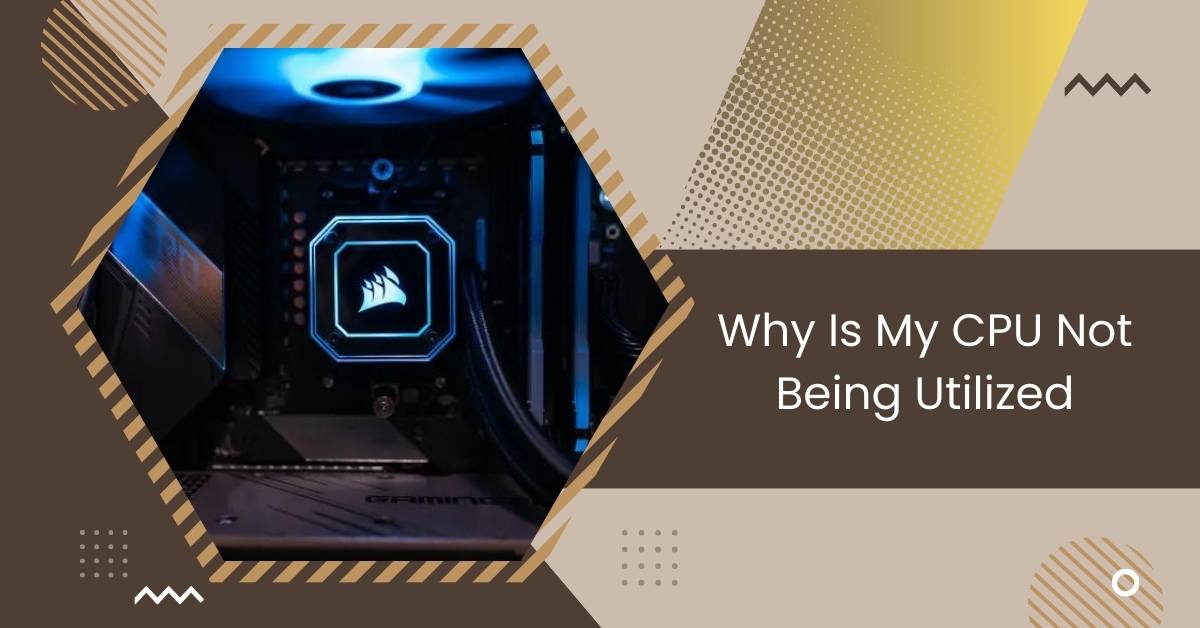Ever thought about why your computer’s brain (CPU) isn’t working as much as it could? If you’re asking this, you’re not the only one.
If your CPU isn’t utilized, it might indicate a system bottleneck. Check your CPU usage in the control panel and uninstall unused programs to optimize performance. Restart your computer and ensure the CPU performance is maximum for improved utilization.
This article will delve into the intricacies of CPU underutilization, exploring the causes, impact, and solutions to ensure your computer runs at its best.
What Causes CPU Underutilization?
Your CPU might not be reaching its full potential due to various factors. It could result from misconfigurations, power settings, or even software issues. Let’s explore the common culprits:
Power Settings:
- Check your power settings to ensure they are optimized for performance.
- Adjust settings to prevent the CPU from throttling down unnecessarily.
Misconfigured Software:
- Some applications may need to be configured to utilize multiple cores efficiently.
- Update software and drivers to ensure compatibility with your CPU.
Background Processes:
- Identify and manage unnecessary background processes that might be hogging CPU resources.
- Utilize task manager tools to monitor and control resource usage.
When Does CPU Underutilization Occur?
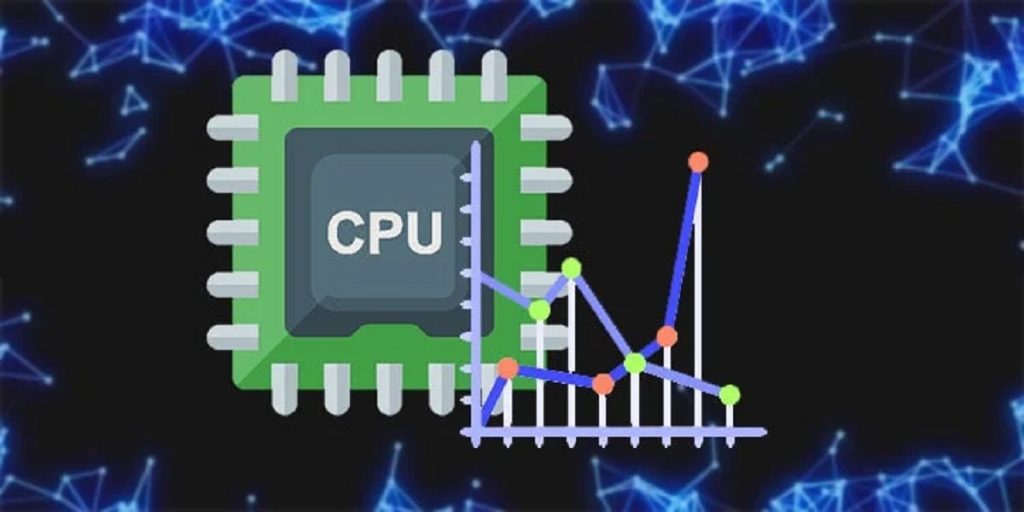
Why does your computer’s brain, the CPU, seem to be chilling out? It happens when your computer takes a break, like when you’re not using it much.
Sometimes, the software needs to be talking to the CPU in the right way, making it a bit lazy. Imagine your computer as a worker – if it’s not busy with tasks, it might look like it’s slacking.
So, to keep your computer always ready, make sure it’s not in rest mode and that the software is giving the CPU enough things to do.
Impact Of Low CPU Utilization
When your computer’s brain, the CPU, isn’t working much, it can impact your computer’s performance. It might make things run slower and not respond as quickly.
It’s like having a car with a slow engine—it won’t go as fast. So, if your computer is acting sluggishly, low CPU utilization could be the culprit. Keeping your CPU busy with tasks helps maintain a smooth and speedy computer experience.
Read: GPU And CPU Not At 100 But Low Fps – A Detailed Overview!
How To Diagnose CPU Underutilization
Diagnosing CPU underutilization requires a systematic approach. Here’s a step-by-step guide:
Open Task Manager:
- Press Ctrl + Shift + Esc to open Task Manager.
- Look for the “Performance” tab to view CPU usage.
Check Running Processes:
- Navigate to the “Processes” tab.
- Identify any processes using a significant amount of CPU.
Monitor Over Time:
- Observe CPU usage over time.
- Note patterns or irregularities in usage.
Use Resource Monitoring Tools:
- Explore third-party tools like HWMonitor or CPU-Z for detailed analysis.
- Monitor temperature, clock speed, and core usage.
Update Software and Drivers:
- Make sure all your computer programs and drivers are the newest versions.
- Outdated versions may need to be more utilized.
Adjust Power Settings:
- Access power settings in the Control Panel.
- Opt for high-performance settings to maximize CPU usage.
Review Affinity Settings:
- Adjust CPU affinity for specific applications.
- Distribute workload across multiple cores.
Consider Overclocking (Advanced Users):
- Research safe overclocking methods.
- Caution: Overclocking may void warranties and require expertise.
Following these steps, you can identify and address CPU underutilization issues, optimizing your computer’s performance for a smoother experience.
Read: Baldur’s Gate 3 High CPU Usage – Fix Issues Like A Pro!
Common Causes Of Low CPU Utilization
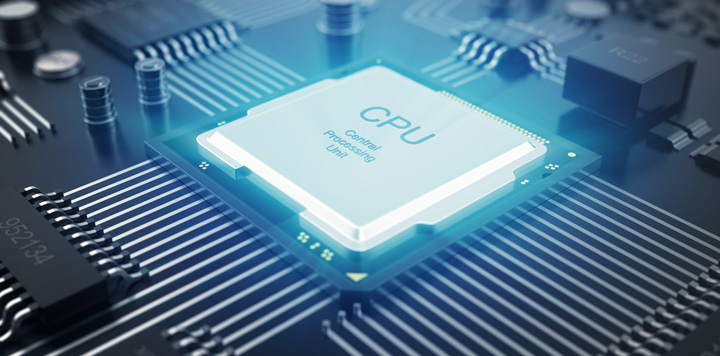
Not Enough Tasks:
- The CPU might seem lazy if your computer has little to do.
- Ensure you’re running applications and tasks to keep it busy.
Outdated Software:
- Old programs and apps may need to talk better with the CPU.
- Keep everything updated to help the CPU work smoothly.
Power Settings:
- Your computer might be set to save power, making the CPU slow.
- Check and adjust power settings for better performance.
Background Processes:
- Some hidden tasks may use CPU power without you knowing.
- Use Task Manager to stop unnecessary processes.
Misbehaving Software:
- Specific programs may need to use the CPU more efficiently.
- Update or replace software causing issues for better CPU performance.
Read: Why Is My CPU Usage So Low While Gaming: Fix Issues – 2024
Advanced Techniques To Improve CPU Utilization
Overclocking Magic:
- Make your CPU work faster by overclocking it a bit.
- Be careful, though—this is for advanced users.
Balance Tasks with Affinity:
- Teach your CPU which jobs to handle by adjusting affinity.
- It helps distribute work for smoother performance.
Update, Update, Update:
- Make sure to update your computer’s programs and drivers regularly.
- Ensures everything talks to the CPU correctly.
Task Manager Mastery:
- Use Task Manager to see what tasks are hogging CPU power.
- Stop unnecessary tasks to free up resources.
Cooling is Key:
- Keep your CPU cool with proper cooling solutions.
- It prevents overheating and helps it work efficiently.
Read: What Is VDDCR CPU Voltage? – Optimize CPU Voltage Settings!
User Tips For Optimal CPU Usage
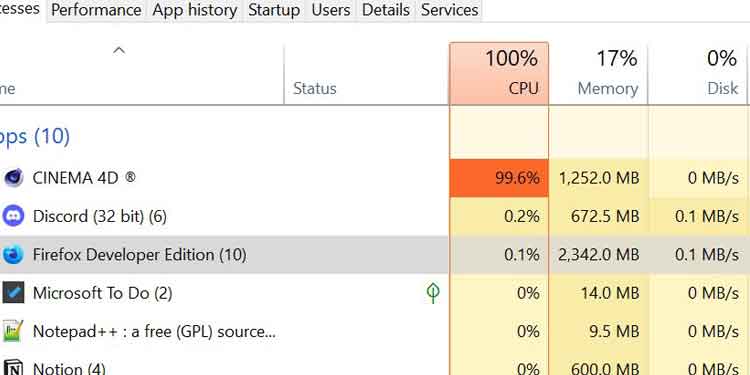
To get the most out of your computer’s brain, the CPU, follow these user-friendly tips:
Regular Cleanup:
- Keep your computer clutter-free by removing unnecessary files and apps.
- A tidy system helps the CPU focus on essential tasks.
Stay Updated:
- Constantly update your software and operating system.
- Updated programs ensure smooth communication with the CPU.
Monitor Background Apps:
- Check Task Manager for hidden apps using CPU power.
- Closing unnecessary tasks frees up resources for important jobs.
Cooling Solutions:
- Ensure your CPU stays cool with proper cooling solutions.
- Overheating can slow it down—keeping it calm ensures optimal performance.
Protect Against Viruses:
- Use reliable antivirus software to prevent viruses.
- Viruses can affect CPU performance; keeping them at bay ensures a smooth experience.
By following these easy tips, you can keep your CPU in top-notch shape, providing a faster and more efficient computer experience.
PC Not Fully Utilizing CPU/GPU/RAM
If your computer needs to use its CPU, GPU, or RAM entirely, here are some easy steps to improve performance. First, check if your motherboard has the latest BIOS version.
If your CPU isn’t fully utilized, unload unnecessary tasks and lower some settings, especially if you’re experiencing slow system or video performance.
If problems persist, try uninstalling and reinstalling applications. Restart your PC after uninstalling to ensure a fresh start.
These simple actions, like playing video games, can optimize your computer’s processing power for smoother experiences.
Read: Is Execution Time The Same As CPU Time – Ultimate Guideline!
Low CPU Usage And Low Fps
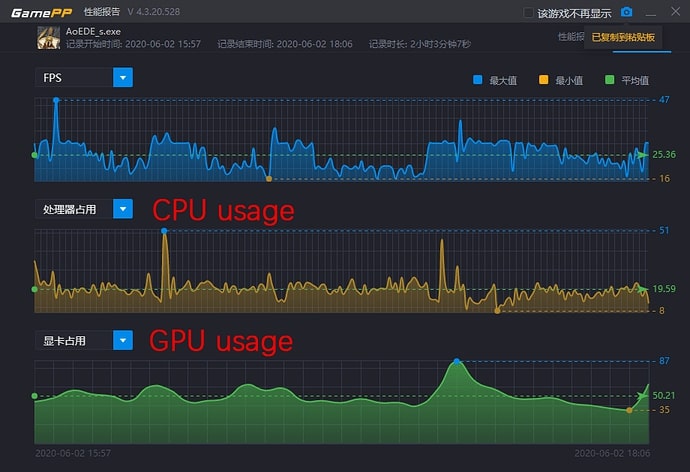
To improve low CPU usage and low FPS, turn off unnecessary startup applications in the Task Manager’s startup tab. Check advanced system settings to ensure optimal CPU and GPU utilization.
If facing low GPU and CPU load, consider disabling sync or adjusting frame settings for better performance.
Addressing these factors can resolve low CPU and GPU usage issues, resulting in improved overall system performance and FPS.
Extremely Low CPU usage While Gaming
Low CPU usage during gaming can result from efficient game optimization, GPU bottlenecking, or background processes diverting resources. Monitor performance to identify potential issues.
What Could Be The Reasons For Low Cpu Usage?
Low CPU usage can stem from idle system state, efficient task management, power-saving features, hardware limitations, and well-optimized software.
Read: Is It Normal For CPU Clock Speed To Fluctuate – Guideline!
My Gpu And Cpu Have Low Usage And Still Getting Bad Fps. Why?
Despite poor FPS, low GPU and CPU usage could indicate bottlenecks elsewhere, such as slow storage, insufficient RAM, outdated drivers, or software conflicts. Investigate these areas for performance issues.
5% Cpu, 95% Gpu In Games. Is That Normal?
A 5% CPU and 95% GPU usage during gaming is not unusual, especially in games that heavily rely on graphical processing. This distribution indicates efficient GPU utilization for rendering while the CPU handles other tasks.
Why Is My CPU Not Being Utilized Windows 11
In Windows 11, low CPU utilization could be due to various factors such as idle system state, efficient task management, power-saving settings, background processes, or hardware limitations. Checking these areas may help identify the reason.
Read: Cavwp.Exe High CPU Usage – Fix Cavwp.Exe CPU – 2024!
Why Is My CPU Not Being Utilized Windows 10
In Windows 10, low CPU utilization can occur due to several reasons including idle system state, efficient task management, power-saving settings, background processes, or hardware limitations. Checking these aspects may help diagnose the issue.
Why is my CPU barely being used?
Low CPU usage could stem from system idling, efficient task management, or power-saving settings. Investigating background processes and hardware capabilities can help diagnose the issue.
Why is my CPU and GPU not fully utilized?
Underutilization of CPU and GPU may indicate bottlenecks elsewhere in the system, such as insufficient RAM, slow storage, or software inefficiencies. Investigate these areas to optimize performance.
How To Fix Low CPU Usage Windows 11
To address low CPU usage in Windows 11, try adjusting power settings, updating drivers, checking for malware, optimizing startup programs, and ensuring efficient task management through Task Manager.
Read: Why Does My CPU Keep Spiking – Causes And Tips In 2024!
Low Cpu Usage In Games Windows 11
Low CPU usage in games on Windows 11 could be due to various factors such as efficient game optimization, GPU bottlenecking, background processes, or power-saving settings. Troubleshoot these areas to improve performance.
Why Is My CPU usage So Low When Gaming
Low CPU usage during gaming could be due to efficient game optimization, GPU bottlenecking, background processes, power-saving settings, or hardware limitations. Investigate these factors to understand the cause.
Related Questions
1. Why is my CPU not being utilized efficiently?
Your system may not have enough demanding tasks running, or the power plan settings might be configured to conserve energy, limiting CPU usage.
2. What could be causing low CPU utilization?
Outdated drivers, background processes, or malware can impact CPU performance. Regularly update drivers and perform security scans to optimize utilization.
3. How can I boost CPU usage for better performance?
Increase multitasking, run resource-intensive applications, or adjust power settings to “High Performance” to maximize CPU usage and enhance overall system responsiveness.
4. Is low CPU usage normal during idle periods?
Yes, during idle times, the CPU usage tends to be low as the system is not actively processing tasks. It’s normal behaviour to conserve energy.
5. Can insufficient RAM affect CPU utilization?
Yes, inadequate RAM may lead to lower CPU usage as the system struggles to handle data efficiently. Consider upgrading RAM for improved overall performance.
6. Why does my CPU usage spike randomly?
Background processes, scheduled tasks, or system updates may cause intermittent spikes in CPU usage. Monitor the task manager to identify the culprit.
7. Does a high CPU temperature affect utilization?
Excessive CPU temperatures can trigger thermal throttling, reducing performance. Ensure proper cooling, clean your system, and consider applying new thermal paste to optimize usage.
8. Why Won’t My Cpu Operate At Its Max Potential Even When My Application (Which Utilize Cpu’s Resources) Is Lagging?
Several factors could prevent a CPU from reaching its maximum potential, even when running CPU-intensive applications. Possible reasons include thermal throttling, insufficient power supply, hardware limitations, or software inefficiencies.
9. CPU Not Being Utilized According To Afterburner/Geforce Experience/Hwmonitor, Low %, Help!!!!
If your CPU isn’t being utilized according to monitoring tools like Afterburner, GeForce Experience, or HWMonitor despite showing low percentages, consider checking for background processes, power settings, or potential hardware/software issues causing inefficiencies.
Also Read
- Bad CPU Type In Executable Homebrew – Ultimate Guide In 2024
- How Tight Should CPU Cooler Be – Expert Tips On CPU Cooler!
- Fatal Glibc Error: CPU Does Not Support X86-64-V2 – Guide!

Hi everyone, Johns Jack here, your approachable tech aficionado! I’m passionate about CPUs and thrive on keeping up with the newest tech developments. Join me as we delve into the dynamic realm of technology! Visit: Techy Impacts

